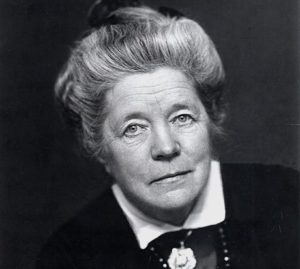
English Project Work On Rattrap – Class 12 CBSE
Acknowledgement
I want to sincerely thank Mr./Mrs. [Name], my English instructor, for all of their help and support during the course of this assignment. Their insightful criticism and recommendations enabled me to sharpen my writing abilities and completed this project.
I also want to express my gratitude to my friends and students for sharing their perspectives on the story’s topics and characters with me. These contributions have helped me develop my thoughts significantly.
Last but not least, I would want to express my gratitude to “Rattrap” author Selma Lagerlöf for penning such a compelling and thought-provoking tale that has motivated me to learn more about the topics of human nature and morals.
We appreciate your encouragement and support.
Introduction
The renowned Swedish author Selma Lagerlöf is the author of the short story “Rattrap”. It is a passage from “The Emperor of Portugallia,” a book she wrote and had published the year before. A destitute wanderer in search of food and shelter comes into a crofter’s cottage in the story’s wooded setting. The wanderer is shown to be a thieving individual who tries to take from the crofter. But then the plot unexpectedly turns, and the wanderer’s life is completely transformed.
About The Author

Swedish author Selma Lagerlöf was born in Mrbacka, Sweden, on November 20, 1858. Her works have been translated into more than 50 different languages, and she was the first woman to receive the Nobel Prize in Literature in 1909. She gained notoriety for writing “The Wonderful Adventures of Nils,” a children’s book that is revered in Swedish literature.
In her 30s, Lagerlöf began writing, and she has since produced a number of plays, short tales, and novels. Her writings frequently expressed her love of animals and the natural world and addressed issues like social injustice and interpersonal connections. She supported women’s rights and participated in a number of social initiatives.
The writing style of Lagerlöf was renowned for its vivid descriptions, symbolic usage, and profound knowledge of human nature. She passed suddenly in Sweden on March 16, 1940, leaving behind a rich literary legacy.
Character Sketch
A tiny ensemble of individuals, each with own characteristics and objectives, makes up the story “Rattrap”.
The Vagabond: A homeless guy who relies on begging and theft as a means of subsistence is the story’s protagonist in “The Vagabond.” He is described as an unkempt, dishevelled man who is constantly on the go. The vagrant, despite his harsh demeanour, has a good heart and an inquisitive mind.
The Crofter: The Crofter is a peasant farmer who resides in a tiny cabin in the woods. He welcomes the wanderer into his home and shares his little resources with him because he is a nice and generous man.
Edla Willmansson: Edla Willmansson is a young lady who runs into the wanderer while he is posing as a street vendor. She starts a discussion with the wanderer because she is interested in him. The vagabond’s life is significantly impacted by Edla’s interactions with him because of her kindness and compassion.
The Ironmaster: The Ironmaster is a wealthy individual who lives close to the crofter’s home and is the owner of a sizable estate. He is shown to be a cold, uncaring individual who is solely concerned with his own fortune and power.
The plot and concepts of the story are developed with the help of each character in an essential way. Their interactions with one another highlight the complexity of human nature as well as the value of love and compassion.
Theme
The tale “Rattrap” examines a number of subjects, such as:
Identity: According to the narrative, a person’s identity is not static and is subject to change depending on their environment and interactions with others. As he interacts with the crofter and Edla, the vagabond, who initially portrays himself as a thief and a beggar, changes into a more upbeat and hopeful character.
Kindness and compassion: The narrative emphasises the significance of displaying kindness and compassion for others. He is profoundly affected by the crofter and Edla’s kindness to the wanderer, which finally causes him to alter his behaviour.
Materialism and greed: The ironmaster’s persona serves as a metaphor for the story’s condemnation of the materialistic and greedy nature of society. He is alone and unhappy because he is only concerned with acquiring wealth and power.
The power of storytelling: A reoccurring theme in the narrative is the vagabond’s propensity for telling tales. His tales have the ability to inspire and change those who hear them in addition to amusing them. This shows that creating stories can be an effective means of forming relationships with people and defining one’s own identity.
Overall, the narrative emphasises the value of compassion, empathy, and the transformational potential of human connection.
Title
The story’s main themes and motifs are indicated by the title “Rattrap”. The vagabond’s life, which is marked by poverty, despair, and dishonesty, is symbolised by the “rattrap.” The wanderer feels himself as a mouse in a trap, helpless to free himself.
But as the narrative goes on, the metaphorical “rattrap” gains a new significance. As a result of the vagabond’s contacts with the crofter and Edla, he starts to see himself in a new light, and it becomes a symbol of hope and transformation. Thus, the title effectively conveys the main idea of the narrative, which is that there is always a chance for redemption and change, even in the most hopeless situations.
Social Message
“Rattrap” is a short story with a powerful social message on the plight of the underprivileged and disadvantaged in society. The author illustrates the hardships of individuals who must live on the periphery of society and are continuously fighting for survival via the perspective of the vagrant.
The moral of the story emphasises the value of having empathy and sympathy for those who are less fortunate. The crofter’s consideration for the wanderer and Edla’s readiness to talk to him in spite of his looks show how human connection has the ability to change lives.
In addition, the ironmaster’s character serves as a critique of society’s materialism and selfishness. The ironmaster suffers from loneliness and sadness because he only cares about money and power.
Overall, the narrative might be interpreted as a plea for a more caring and accepting society, one that treats the weaker members of society with respect and dignity.
Moral
The lesson of the story “Rattrap” is that even in the most trying situations, there is still hope for redemption and the power of human connection.
The narrative implies that a person’s identity is malleable and subject to change depending on their environment and interactions with others. As he interacts with the crofter and Edla, the vagabond, who initially portrays himself as a thief and a beggar, changes into a more upbeat and hopeful character. They have shown him warmth and understanding, which have enabled him to see himself in a new light and have made this transition possible.
The narrative also stresses the value of having empathy, compassion, and kindness towards others. He is profoundly affected by the crofter and Edla’s kindness to the wanderer, which finally causes him to alter his behaviour. The moral of the story is that no matter what their situation or social standing, we should treat everyone with love and empathy.
The moral of the story is one of hope and redemption, highlighting the value of treating others with kindness and compassion as well as the transformational power of human connection.
Conclusion
The tale “Rattrap” provides a potent examination of ideas like individuality, sympathy, materialism, and the persuasiveness of narrative. By using the persona of the vagrant, the author illustrates the difficulties faced by individuals who must live on the periphery of society and emphasises the value of compassion and understanding for those who are less fortunate.
Even in the most hopeless situations, transformation and redemption are possible, as the story’s title, “Rattrap,” perfectly encapsulates. The lesson of the story is one of hope and emphasises the need of treating others with kindness and compassion as well as the transformative power of human connection.
Overall, “Rattrap” is a thought-provoking and motivational tale that inspires us to examine our own perspectives on people who are less fortunate and work to build a society that is more accepting and caring.
Certificate
Date: [Insert Date]
I, [Student’s Name], a student of Class 12 at [School/College Name], am thrilled to present my English project on the short story “Rattrap. ” This project has been an enriching experience for me, allowing me to delve into the captivating world created by the renowned Swedish author Selma Lagerlöf.
I want to extend my heartfelt gratitude to my English instructor, Mr. /Mrs. [Name], for their unwavering guidance, support, and valuable feedback throughout this project. Their encouragement and constructive criticism have been instrumental in shaping my understanding of the story and enhancing my writing skills.
I would also like to express my appreciation to my friends and fellow students for engaging in insightful discussions and sharing their perspectives on the themes and characters of “Rattrap. ” These discussions have provided me with diverse viewpoints and further enriched my analysis of the story.
Above all, I am immensely thankful to Selma Lagerlöf, the author of “Rattrap, ” for crafting such a thought-provoking and poignant narrative. Through her vivid descriptions and symbolic usage, Lagerlöf has inspired me to reflect on the complexities of human nature and the significance of compassion and empathy.
Completing this project has been an enlightening journey, and I hope that my analysis and interpretation of “Rattrap” have done justice to the depth and brilliance of Selma Lagerlöf’s work.
[Student’s Name] [Class 12] [School/College Name]In order to download the PDF, You must follow on Youtube. Once done, Click on Submit
Follow On YoutubeSubscribed? Click on Confirm
Download English Project Work On Rattrap – Class 12 CBSE PDF






